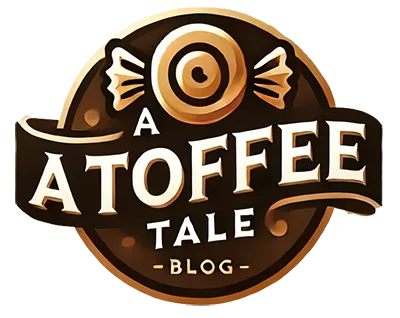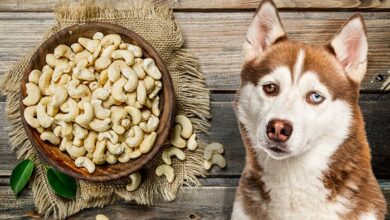Can Dogs Eat Snickerdoodle Cookies? Understanding the Ingredients at 2024

Can Dogs Eat Snickerdoodle Cookies? To understand why these cookies might not be ideal for your dog, it helps to know what they are. Snickerdoodle cookies are a beloved treat made with sugar, cinnamon, flour, butter, and eggs.
These cookies are popular among people for their sweet flavor and comforting texture. They’re often enjoyed with coffee or as a special snack, but the ingredients that make them tasty for humans can pose risks for dogs. Understanding these risks can help you keep your pet safe and healthy.So let’s join us and explore whether can dogs eat Snickerdoodle cookies or not.
Sugar: Can Dogs Eat Snickerdoodle Cookies-Impact on Dog Health

Can Dogs Eat Snickerdoodle Cookies? Understanding the impact of sugar on your dog’s health is vital for making informed treat choices. Here’s a closer look at how sugar affects dogs and what safer alternatives you can choose:
Health Risks
- Obesity: High sugar content in treats like Snickerdoodle cookies can contribute to weight gain in dogs. Excessive sugar leads to an increase in calorie intake, which can result in obesity and related health issues.
- Diabetes: Consuming too much sugar can elevate blood glucose levels, increasing the risk of developing diabetes. Managing sugar intake is essential to prevent this serious condition.
- Dental Problems: Sugar promotes tooth decay and gum disease. Dogs that consume sugary treats may experience plaque buildup, cavities, and other dental issues over time.
Safer Alternatives
- Low-Sugar Treats: Choose treats with reduced sugar content to minimize the risk of obesity and diabetes. Look for products specifically designed to be lower in sugar while still providing a tasty reward.
- Fresh Fruits: Offer fresh fruits like apples (without seeds) and blueberries as healthy treat options. These fruits provide natural sweetness along with essential vitamins and antioxidants, making them a better choice for your dog’s diet.
By opting for safer alternatives and being mindful of sugar intake, you can help ensure your dog’s health while still giving them enjoyable treats.
Cinnamon: Benefits and Risks
Can Dogs Eat Snickerdoodle Cookies? Cinnamon is a common ingredient in many human treats, including Snickerdoodle cookies. Understanding the benefits and risks of cinnamon can help you make better choices for your dog. Here’s a detailed look:
Benefits
- Antioxidants: Cinnamon contains antioxidants that can offer health benefits. In small amounts, it may contribute to your dog’s overall health by helping to combat oxidative stress.
Risks
- Digestive Upset: Excessive cinnamon can lead to gastrointestinal issues, including stomach upset and diarrhea. It’s essential to avoid giving too much cinnamon to prevent these problems.
- Allergic Reactions: Some dogs may be sensitive or allergic to cinnamon. Symptoms can include itching, swelling, or other allergic reactions. Always monitor your dog for any signs of discomfort.
Safe Usage
- Small Quantities: Cinnamon is generally safe in minimal amounts. A tiny sprinkle of cinnamon is unlikely to cause harm but should still be used cautiously.
- Monitoring: Observe your dog after introducing any new treat containing cinnamon. Watch for any adverse reactions, such as digestive upset or signs of allergy, and discontinue use if any issues arise.
By understanding both the benefits and risks of cinnamon, you can make informed decisions about including it in your dog’s diet and ensure their safety and well-being.
Flour: Considerations for Dogs
Can Dogs Eat Snickerdoodle Cookies? When considering whether Snickerdoodle cookies are safe for dogs, it’s essential to evaluate the flour used in these treats. Flour, particularly wheat flour, can have significant implications for dogs. Here’s an overview of how flour affects dogs and what safer alternatives might be:
Wheat Flour: Considerations for Dogs
- Allergies: Wheat flour can trigger allergic reactions in dogs that are sensitive to wheat. Common symptoms of wheat allergies include itching, ear infections, and skin issues.
- Digestive Issues: For some dogs, wheat flour may cause gastrointestinal problems such as bloating, gas, or diarrhea. These issues are particularly relevant if the dog has a sensitivity or intolerance to wheat.
Gluten-Free Options
- Safe Alternatives: For dogs with known wheat sensitivities or gluten intolerance, using gluten-free flours can be a safer choice. Gluten-free options, like rice flour or chickpea flour, can prevent allergic reactions and digestive upset.
- Benefits: Opting for gluten-free flours helps avoid potential adverse reactions associated with wheat. This ensures that your dog can enjoy treats without the risk of allergy symptoms or digestive discomfort.
When asking, “Can dogs eat Snickerdoodle cookies?” it’s crucial to consider the impact of flour, especially wheat flour, on your dog’s health. By choosing appropriate alternatives and being aware of your dog’s sensitivities, you can help ensure their diet remains safe and enjoyable.
Butter: Effects on Canine Health
Can Dogs Eat Snickerdoodle Cookies? When it comes to Snickerdoodle cookies, butter is a key ingredient that can impact your dog’s health. The high fat content in butter presents several potential risks. Here’s a breakdown of how butter affects canine health and what you can do to mitigate these risks:
High Fat Content
- Pancreatitis: Excessive fat, such as that found in butter, can lead to pancreatitis in dogs. Pancreatitis is a painful inflammation of the pancreas that can cause symptoms like vomiting, abdominal pain, and lethargy.
- Obesity: Butter’s high fat content contributes to weight gain and obesity in dogs. Obesity can lead to a range of health problems, including joint issues, diabetes, and reduced quality of life.
Moderation
- Small Amounts: Even small amounts of butter can be risky for dogs. It’s best to avoid giving them treats that contain butter to prevent health issues related to high fat intake.
- Healthier Fats: Opt for treats that use healthier fats, such as fish oil. Fish oil provides beneficial omega-3 fatty acids and is less likely to cause health issues compared to high-fat ingredients like butter.
Can dogs eat Snickerdoodle cookies? Given the high fat content in butter, it’s advisable to avoid giving Snickerdoodle cookies to your dog. Instead, choose treats with healthier fats to support your dog’s overall health and well-being.
Eggs: Nutritional Value and Risks
Can Dogs Eat Snickerdoodle Cookies? When considering whether Snickerdoodle cookies are suitable for dogs, it’s important to evaluate the role of eggs in these treats. Eggs are a common ingredient, and understanding their nutritional benefits and potential risks can help ensure your dog’s safety. Here’s what you need to know about eggs in the context of canine health:
Nutritional Benefits
- Protein Source: Eggs are a high-quality source of protein, providing essential amino acids that support muscle health, immune function, and overall well-being in dogs. They also offer various vitamins and minerals that contribute to a balanced diet.
Potential Risks
- Allergic Reactions: Some dogs may have allergies to eggs, which can cause symptoms like itching, swelling, or gastrointestinal upset. It’s important to monitor your dog for any signs of an allergic reaction when introducing eggs into their diet.
- Salmonella Risk: Raw eggs can carry the risk of bacterial infection, such as Salmonella. To avoid this risk, it’s crucial to cook eggs thoroughly before offering them to your dog.
Safe Use
- Cooked Eggs: Incorporate cooked eggs into your dog’s diet rather than raw eggs. Cooking eliminates the risk of bacterial infection and makes the protein more digestible.
- Moderation: Use eggs in moderation to avoid potential allergies and ensure a balanced diet. Too much of any one ingredient can lead to health issues, so it’s best to introduce eggs gradually and in small amounts.
In summary, while can dogs eat Snickerdoodle cookies? the inclusion of eggs presents both benefits and risks. By focusing on cooked eggs and monitoring your dog’s reaction, you can safely include this ingredient in their diet without compromising their health.




